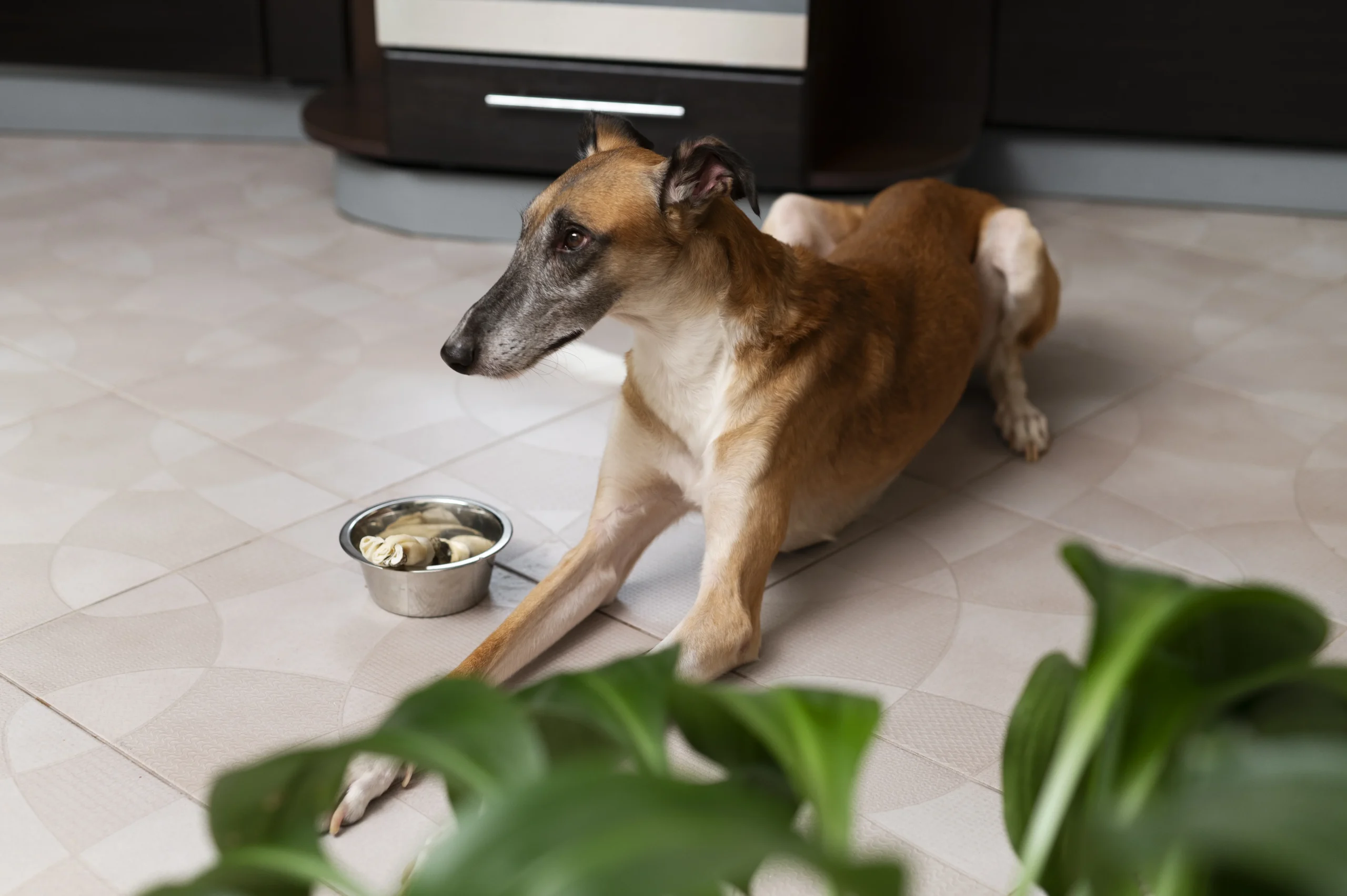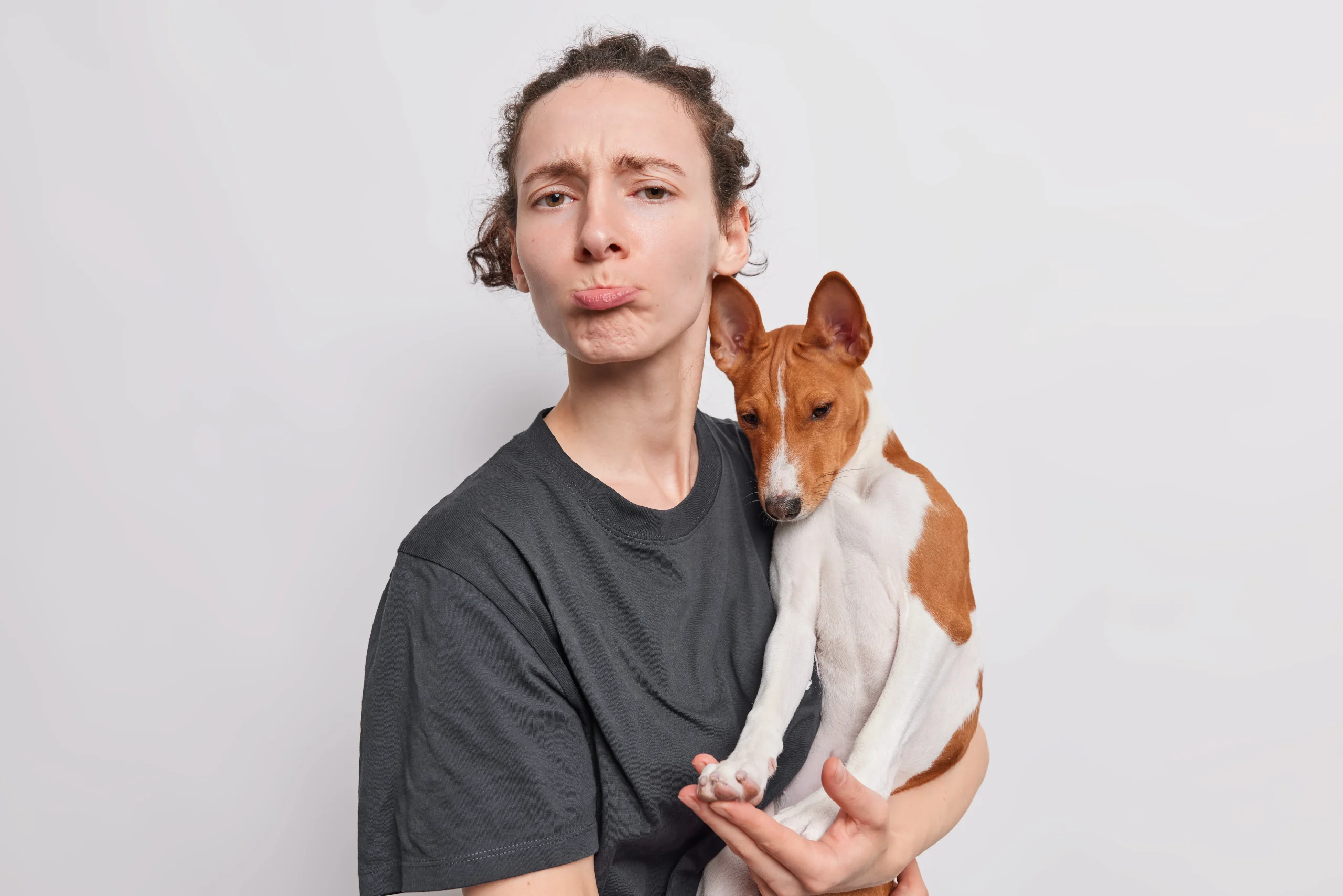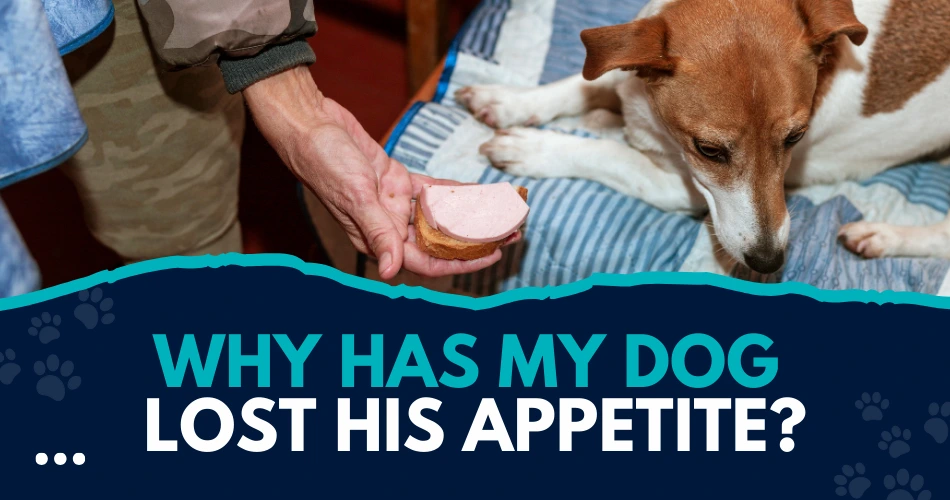Have you ever wondered why your dog has lost appetite or suddenly stopped eating? It’s heartbreaking, right? As a dog owner, I know exactly how it feels, as I have experienced the same when my pet friend suddenly lost his appetite.
It is worrisome to see your pet losing weight and getting thinner day by day. After consulting with veterinarians and reading numerous research papers, here is a comprehensive guide on why your dog has lost its appetite. Let’s take a deep dive in!
Symptoms of Loss of Appetite in Dogs

Dogs’ appetite loss is pretty concerning, and owners must pay close attention. There is a wide range of symptoms associated with the loss of appetite in dogs, which may include:
- Eating less than expected or consistently eating smaller portions than usual
- Refusing to eat at all
- Sudden refusal to eat treats
- Lack of interest in food
- Trying to eat but unable
- Not being able to jump anymore
- Gradual weight loss
- Weakness or fatigue
- Vomiting or nortia
- Dental disease due to broken teeth
- Abdominal pain, fatigue, or discomfort
- Change in Behavior
- Various other reasons
Dogs are speechless creatures, and understanding their symptoms of loss of appetite is important for dog owners. In the below sections, we have discussed why your dogs won’t eat.
Reasons Why Your Dog Won’t Eat

1. Illness
A sudden drop in your dog’s appetite can suggest illness. Just like people, dogs might avoid food if they’re feeling unwell. Common health issues such as infections, liver, kidney disease, or even cancer can cause them to lose interest in eating. Be on the lookout for additional symptoms like fever or vomiting. Consult a veteran specialist to identify and treat any underlying conditions.
2. Dental Disease
If your dog is avoiding food or having trouble chewing, it could be due to dental issues. Dental issues can include gum disease, broken teeth, or infections, which can make eating painful and uncomfortable.
Regular dental check-ups are key to preventing such issues. If you notice any discomfort, a visit to the veterinarian may be necessary to address the problem and help your dog enjoy its meals again.
3. Recent Vaccination
After vaccination, it’s common for dogs to experience a temporary loss of appetite. This temporary loss of appetite can typically resolve within a day or two. Vaccinations are crucial for your pet’s health, but mild side effects, like loss of appetite, can occur. If your dog’s appetite doesn’t return after a few days, it’s best to consult your vet for advice.
4. Travel and Unfamiliar Surroundings
Traveling or being in a new, unfamiliar environment can cause stress or anxiety in dogs and may lead to a temporary loss of appetite. The change in surroundings may make your pet frind skip meals.
However, their eating habits typically return to normal once they feel more comfortable and settled. It is important to create a familiar, calming space that can help ease their stress and encourage them to eat.
5. Pickiness or Behavior Issues
Some dogs are naturally picky eaters or may have behavioral issues that affect their appetite. They might refuse certain foods or stop eating if their routine changes. Anxiety or attention-seeking behaviors can also contribute to not eating food. To encourage better eating habits, try offering dog-friendly foods. You may also create a calm, distraction-free environment during mealtimes.
6. Due to Aging
As dogs age, their appetite and digestive systems drastically change. Older dogs might eat less frequently or prefer softer foods due to a slower metabolism or age-related health issues.
If you notice significant changes in your senior dog’s eating habits, it could be a regular part due to aging. However, it’s wise to consult your vet to ensure no other health concerns affect their appetite.
7. Gastrointestinal Upset
Stomach issues like indigestion, gas, or nausea can lead to a loss of hunger in dogs. If your dog has eaten something that didn’t sit well, they might experience gastrointestinal upset. You will need to watch for additional symptoms, such as vomiting or diarrhea, to validate these gastrointestinal upsets, which often may lead to a loss of appetite. If these issues persist, it’s important to consult a vet to diagnose and address the underlying problem.
8. Bad Taste of Foods
Just like people, dogs have their own taste preferences. If your dog isn’t eating their food, it could be because they don’t like the flavor or the formula has changed. The food might also be stale or simply not appealing anymore. If your dog is rejecting food they previously enjoyed, consider trying a different brand or flavor to see if that entices them to eat.
9. Changes in Diets
A sudden change in your dog’s diet may upset its stomach, leading to refusal to eat. To avoid this stomach upset, gradually introduce your dog to new food.
You can do this by mixing a small amount with old food. This gradual transition helps your dog’s digestive system adjust to the new diet smoothly.
10. Food Bowl Size and Placement
The size and placement of your dog’s food bowl can affect how they eat. If the bowl is too high, deep, or in an awkward spot, your dog might not want to eat. Make sure that the bowl is the right size and placed in a quiet, comfortable area.
This helps encourage them to have better eating habits. Adjusting the bowl’s height or choosing a more suitable bowl can help your dog eat more comfortably.
What Can You Do To Feed Your Dog?
Former nurse and dog owner Jill Millbourn shares that she feeds her dogs twice a day, in the morning and at night. She also recommends including human-grade beef mince, cooked chicken, beef, lamb, venison, and boneless fish in their diet. Twice a week, she adds a dessert spoon of mashed vegetables to their meals for added nutrition.
Proper feeding is vital for your dog’s health and well-being and can help improve their appetite. Here are some tips to ensure your dog gets the proper nutrients:
- Choose high-quality dog food.
- Establish a consistent feeding routine.
- Measure portions based on your dog’s size, age, and activity level.
- Choose those fruits and vegetables that dogs can eat.
- Provide fresh water daily.
- Limit treats
- Select high-quality supplements from trusted brands.
- Consult a veterinarian or professional trainer for personalized advice.
Should You Worry About Dogs Eating?
Yes, it’s important to pay attention to what your dog eats. Certain foods can be harmful. Small items like bones and other staff might become choking hazards. Furthermore, foods like chocolate, onions, and grapes can be toxic.
Overeating or consuming unfamiliar things may lead to digestive issues, like an upset stomach or diarrhea. Weight gain from overeating can also cause health concerns. To keep your dog healthy, provide a well-balanced diet with quality food.
It is essential to avoid harmful ingredients, monitor portion sizes, and ensure fresh water is always available. These steps will help your dog stay happy and healthy.
Conclusion
It’s heartbreaking to see your dog lose interest in food. A sudden change in appetite can be harmful, so it’s important to pay close attention to any symptoms of their loss of appetite. .
Several potential causes include dental disease, illness, unfamiliar surroundings, aging, and gastrointestinal issues. To encourage better eating habits, provide a balanced diet, monitor their food intake, create a calm mealtime environment, and take good care of your dog at home. If the issue persists, consult a vet, as proper nutrition is vital for your dog’s well-being. For further consultation, contact Content Fit Pets. Their years of success in providing quality dog care have made them the go-to solution for dog owners.

